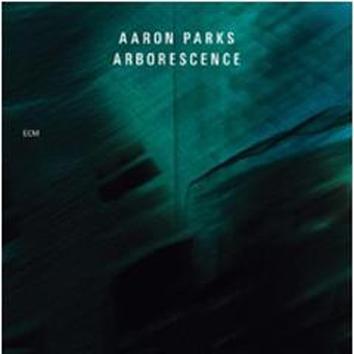
Aaron Parks was a child prodigy, attending the University of Washington with a triple-major in Mathematics, Computer Sciences and Music. Now consider that he did this at the age of fifteen.
He has taken third place at the Jas Hennessy Piano Solo Competition at Montreaux, third place at the Thelonious Monk International Jazz Piano Competition and was the champion Cole Porter Fellow of the American Pianists Association. He has appeared as a sideman for Terence Blanchard five times (three of those on Blue Note Records) and with Will Vinson , Mike Moreno, Kurt Rosenwinkel, Christian Scott and with Joshua Redman on the “James Farm” project. His first album as a quartet leader was on 2008’s “Invisible Cinema.”
Finally, Parks has released his first solo album, to be released October 15, 2013 from ECM Records. The album was recorded at Mechanic’s Hall in Worcester, Massachusetts. The low lights and warm acoustics were essential for this November, 2011 recording.
Parks lists his influences as Paul Bley, Ran Blake, Bela Bartok and Herbie Hancock. Then there is the unmistakable influence of Keith Jarrett. That sweet influence is evident from the first track.
| | |
There is a fluidity in the movement of the piece but also created is the feeling of repose and reflection. This music--indeed the whole album--is personal and introspective. That feeling is carried on in “Toward Awakening.”
The barely audible humming from Parks emerges from the sense of aloneness but it is accompanied by inspiration as the modulations create the a feeling of gratitude and achievement. Perhaps this is Parks’ most Jarrett-like moment.
 Aaron Parks
Aaron Parks “In Pursuit” creates the very imagery of chase. Whereas woodland creatures may be conjured in the mind, the pursuit is onward-drawing and bold. Parks speaks of the flow of this album in his description that “it often felt less like conscious intention and more like something half-dreamed, half-remembered.”
The left-hand chords of “In Pursuit” take on a majestic feel succeeded by the right-hand arpeggios which force a circular sensation. The pursuit, in other words, is unending and recalls the words of the Zen roshi who says “the journey is the destination.”
A delightful, playful quality is portrayed in “Squirrels.” It is charming and peaceful with that “half-remembered” quality while “Branchings” has more of the “half-dreamed” feel. Parks’ vocalizations weave in and out like talking in one’s sleep.
“Branchings” begins with a four-note motif that is modulated in the left hand throughout the body of the piece only to move back to the right hand. That motif slowly fades until on the first two notes of the motif and played and fade, like reaching the end of the branch. A brilliant track.
A mesmerizing, if not enchanting, susurrus is developed in “River Ways.” Soft and delicate, it is the stuff of meditation. That delicacy is brought forward and expanded in “A Curious Bloom.” There is a true sense of wonder and inquisitiveness in this exploration of tone and phrasing. It is the touch and not the melody that is on display here. Where touch is usually the servant of the melody, the reverse is true on “A Curious Bloom.”
“Reverie” is reminiscent of another of Parks’ influences being Bela Bartok’s traditional Hungarian folk songs of the early 1900s. The dream-like dance is gorgeously presented here.
“Throughout the recording,” Parks explains, it “was a priority for me, that quality of being open, of being open to possibility, wherever it took me.” That priority is nowhere clearer than on “Homestead,” the final track of “Arborescence.”
There is indeed an exquisite openness. It casts a wide view on endless possibilities, on limitless vistas
of still-possible dreams that begin at the homestead--that leaping-off point between unfulfilled past and bright, unrestricted opportunity. It is Galahad come to Camelot.
"Arborescence" by Aaron Parks can be ordered here.
 RSS Feed
RSS Feed
